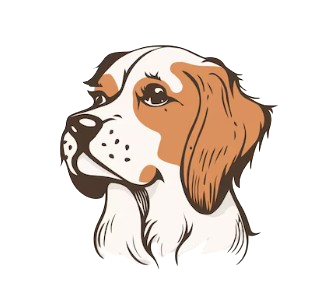Summery :
- Introduction
- Toxic and Dangerous Foods for Dogs
- Food Scraps That Are Toxic or Dangerous for Dogs
- Non-Dangerous Foods
1-Introduction
Many foods that humans habitually consume are toxic to dogs , to the point that, if the animal ingests them in large quantities, it can develop symptoms of poisoning and become very ill .
Unfortunately, it is not always easy to monitor what the dog eats at home; after all, there are very voracious dogs that, as soon as they smell a tasty food in some kitchen cupboard, try to reach it and sometimes they succeed and sometimes they don’t.
Discover Toxic and Safe Foods for your dogs
.
You should be extremely careful about what foods you leave around, especially if they could pose a danger to dogs.
Anyone who adopts a dog should know which foods can be toxic to their four-legged friend. Here, then, is a guide on which foods are harmful and which, instead, are harmless.
[blockquote align=”none” author=”Steve Jobs”]Your time is limited, so don’t waste it living someone else’s life. Don’t be trapped by dogma – which is living with the results of other people’s thinking[/blockquote]
2- Toxic and Dangerous Foods for Dogs
Alcohol
In dogs, alcohol has the same effects as in humans, with the difference that smaller doses are enough to be dangerous.
Dogs are attracted to alcoholic beverages and, above all, to raw preparations that include, among the various ingredients, an alcoholic drink; for example, zabaglione is a preparation based on eggs, sugar and Marsala that is very tempting to dogs, but which they absolutely must not ingest.
In dogs, the consequences of excessive alcohol ingestion are the same as those observed in humans, namely:
- Vomit ;
- Breathing problems;
- Arrhythmias;
- Pressure too low;
- Coma ;
- Death (in extreme cases).
Avocado
A fruit known to be healthy for humans, avocados can be very dangerous for dogs due to the presence of persin , a fungicidal toxin that is harmless to humans but not to many pets.
Structurally similar to a fatty acid , persin in dogs can have the same effects as a poison; in particular, it can cause gastrointestinal irritation , which in turn causes symptoms such as diarrhea and vomiting.
Avocado also contains a lot of fat and its ingestion by dogs can promote the development of pancreatitis.
In avocados, persin is found throughout the fruit, but particularly in the peel and stone.
Broccoli
Broccoli contains isothiocyanates , substances that, if the dog ingests in large quantities, can cause abdominal pain and digestive problems . Therefore, it would be better to avoid giving broccoli to the dog, considering that there are many more appropriate foods .
Small amounts of broccoli are not harmful ; in fact, they can be useful by providing vitamin K , potassium and calcium . However, for the reasons stated above and because there are so many foods to feed a dog, administration can be avoided or at least limited to a few sporadic tastings.
Coffee
Coffee contains methylxanthines ( caffeine , theobromine , etc.), which in dogs can cause:
- Diarrhea;
- Vomit;
- Convulsions ;
- Potentially life-threatening changes in heart rhythm (arrhythmias).
For these reasons, it is necessary to prevent the dog from having access to coffee, dog waste and food preparations containing coffee (e.g. ice cream , sweets, etc.).
Chicken and turkey skin, and other fatty cuts of meat
Chicken and turkey skin , and fatty cuts of meat are very dangerous for dogs, because the high lipid content that characterizes them can cause acute pancreatitis ( acute inflammation of the pancreas ), a condition capable of causing serious complications and, sometimes, even the death of the animal.
Chocolate
Chocolate contains theobromine , a plant alkaloid belonging to the aforementioned methylxanthine family that is toxic to dogs.
Chocolate also contains caffeine , the methylxanthine typical of coffee, the dangers of which for dogs have already been discussed.
Together, theobromine and caffeine create a toxic mixture for the gastrointestinal tract, kidneys , heart , and nervous system of dogs.
Xylitol
Xylitol is an artificial sweetener used as a lower calorie alternative to sugar. It is present in many diet foods as a sugar substitute.
Since some of these foods are tasty to dogs, they may be tempted to eat them; however, xylitol, once consumed, induces the release of insulin , which in a dog can lead to a dangerous state of hypoglycemia .
Grapes and Raisins
Although it is not yet clear why, grapes and raisins ( raisins ) are toxic to dogs, because they can cause kidney failure .
Even small quantities of these fruits are enough to be dangerous.
In dogs, the symptoms of grape and raisin poisoning are:
- Vomit;
- Diarrhea;
- Loss of appetite ;
- Absence of urine , due to an alteration of kidney function.
Macadamia nuts, almonds and pistachios
For reasons still unknown, macadamia nuts can cause a form of poisoning characterized by vomiting, weakness and paralysis of the hind limbs with the ability to walk.
Almonds and pistachios , on the other hand, are dangerous because they can cause choking.
Milk and dairy products
The problem with milk and dairy products is mainly lactose : if the dog is intolerant to it, they could feel sick, developing diarrhea and stomach pain .
However, it must also be said that there are non-intolerant dogs that eat these foods without repercussions.
Secondly, the other issue to address when talking about milk and dairy products for dogs is the fat content: as mentioned on other occasions, in dogs, an excess of fat can cause pancreatitis.
In light of this, if you really want to give cheese or another dairy product to your dog, it is better to opt for a low- fat food .
Mushrooms
Mushrooms contain toxins that, in dogs, can cause kidney failure, liver failure , vomiting, diarrhea and damage to red blood cells .
Nutmeg and cinnamon
Nutmeg contains myristicin , a substance that causes hallucinations and severe vomiting in dogs. The toxic power of nutmeg increases if the dose is high; furthermore, it is important to remember that small dogs are more sensitive to low doses than medium and large dogs.
As for cinnamon , however, this should be avoided because it can irritate the dog’s mouth if inhaled.
Onion, garlic, chives and leek
Belonging to the genus Allium , onion , garlic , chives and leeks contain sulfoxides , which in dogs can damage red blood cells and cause potentially fatal forms of anemia .
All dogs should stay away from plants of the Allium genus, but especially the Shiba Inu and Akita Inu breeds.
Salt
In dogs, excessive consumption of salty foods can alter the cellular osmotic balance and this, in the absence of adequate hydration, can cause tremors , convulsions and, in extreme cases, even the death of the animal.
If by chance the dog eats a few too many chips, it is best to provide him with plenty of water.
Spicy food
In dogs, spicy and hot foods can cause vomiting, diarrhea and very painful stomach ulcers.
In light of this, it is best to avoid it, since there are many much healthier and less dangerous foods.
Raw tomatoes and potatoes
Tomatoes and potatoes are foods that are toxic to dogs in one form and non-toxic in another.
Tomatoes are toxic when unripe , as they are rich in solanine , a substance that is harmful to dogs.
Potatoes are toxic when raw , also because they are rich in solanine in this form.
Yeast and raw dough
In dogs, ingestion of raw pasta can expand and cause severe abdominal pain and, in extreme cases, stomach torsion .
Yeast , on the other hand, can ferment and cause alcohol toxicity.
Raw meat
Raw meat may contain salmonella , a bacterium that is as harmful to humans as it is to dogs.
3- Food Scraps That Are Toxic or Dangerous for Dogs
In this article, it is also necessary to point out food waste that can have toxic effects on dogs.
Apple, apricot, cherry and plum seeds and pits
Apple seeds and apricot , cherry and plum stones contain cyanide , a poison which, if ingested by dogs in inappropriate quantities, can cause:
- Vomit;
- Irregular heartbeat and tachycardia ;
- Convulsions;
- Coma;
- Death (in extreme cases).
Avocado pit
The toxicity of avocados has already been discussed. It remains to be noted the danger of the stone of this fruit, which, if ingested by the animal, can cause suffocation or intestinal obstruction .
Chicken and turkey bones
Ingestion of chicken and turkey bones by dogs can cause vomiting; in addition, consumption of chipped bones can cause lesions in the intestines or stomach.
4-Non-Dangerous Foods
Apples, oranges and bananas
Always remembering moderation, apple pulp , oranges and bananas are a tasty and harmless snack for dogs.
Blueberries and blackberries
Blueberries and blackberries are tasty treats that your dog might love.
Blueberries contain antioxidants , fiber , phytochemicals, and vitamin C , which are great for your dog’s health.
Melon, mango, peaches, pears, pineapple and watermelon
Once the peel and seeds have been removed, melon and watermelon are two very tasty , thirst-quenching and safe fruits for dogs.
The same goes for mangoes , peaches , pears and pineapples , if eaten in moderation and without seeds/pits.
Carrots, cucumbers and celery
Carrots , cucumbers and celery are three vegetables that dogs can freely consume, as they are not dangerous.
In fact, carrots are a source of beta-carotene and minerals ; among other things, many dogs enjoy them raw, because of their crunchiness.
As many dog owners already know, carrots are a common ingredient in many commercial dog and cat foods.
Celery is also appreciated for its crunchy effect; furthermore, it freshens the dog’s breath, proving useful in case of halitosis .
Finally, cucumber is a vegetable that provides many vitamins and minerals , and has few calories .
Cheese
If the dog is not lactose intolerant , he can safely eat a little cheese , as long as it is low in fat; remember, in fact, that an excess of fat in the dog can cause acute pancreatitis.
Egg
Fully cooked eggs are a tasty food for dogs as well as an important source of protein .
It is better, however, to avoid raw eggs , because they could be contaminated by salmonella, a bacteria that is dangerous for dogs.
Popcorn and corn
For dogs, popcorn is a delicacy. If it is air-popped, unsalted and without butter , it is also a food that has no particular contraindications , except that of administering it in moderation due to its caloric intake.
If you usually give popcorn to your dog, you must be careful that there are no unpopped kernels of corn , because they could cause choking.
Of course, if popcorn is allowed, cooked corn is too , as long as it is not seasoned with butter, salt and spices.
Shrimp and Fish
Fully cooked and unseasoned shrimp are an excellent food for dogs. Before giving them to your dog, of course, you should remove the shell, tail and legs .
Fish is also a permitted and appreciated food, especially salmon , sardines and tuna .
A note on tuna is necessary: it can be given, but in moderation and, in the case of the packaged product, only if preserved in water (the product in oil is fattier).
Turkey and chicken
Turkey and chicken are safe and very tasty meats for dogs. In addition, they are rich in protein and fairly low in fat.
Before giving them, you should remove the skin, excess fat and bones.
As mentioned elsewhere, they should not be seasoned or salted.
Green beans
Many dogs enjoy green beans , whether raw or steamed .
The good news is that they are safe, tasty and healthy; therefore, they are allowed without hesitation.
The usual precaution is to administer them only if spices, salt and oils are added.
Finally, it is important to point out that they should be cut into small pieces to avoid choking the dog.




